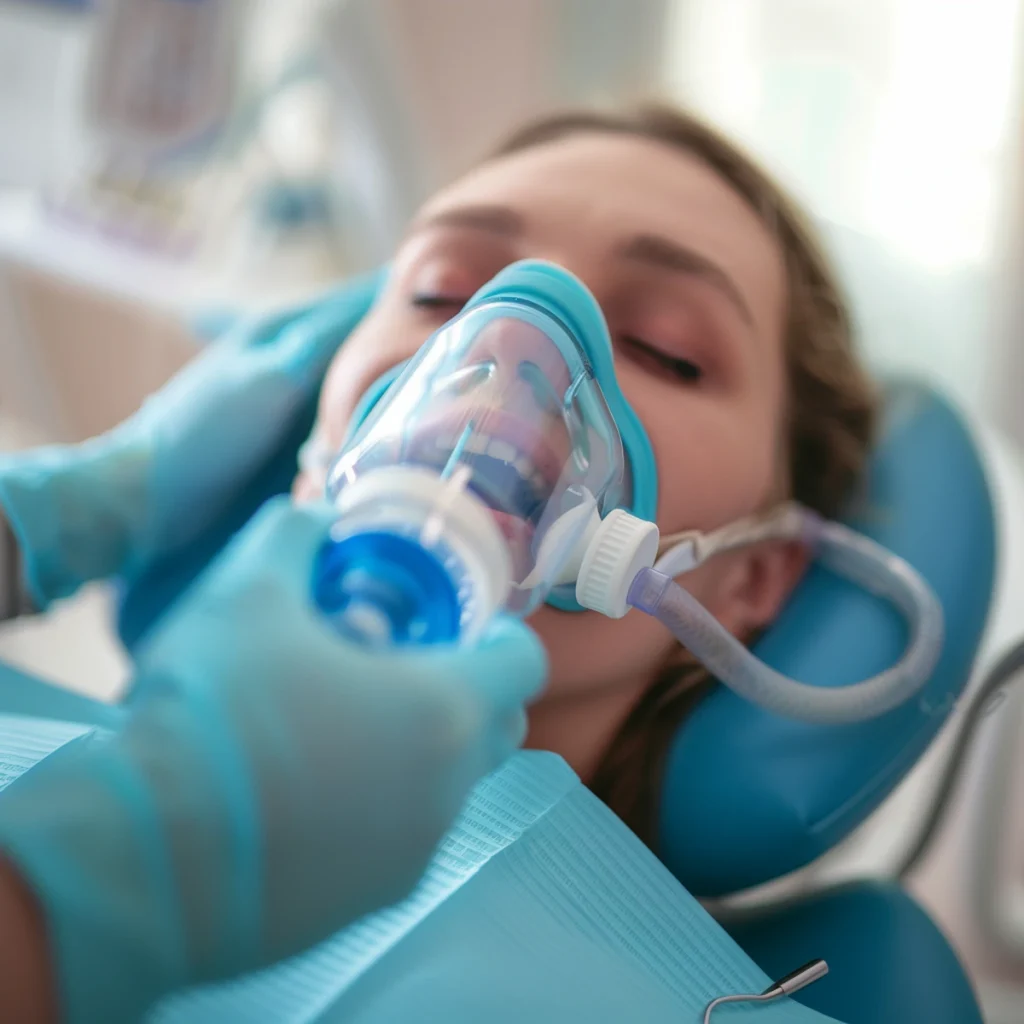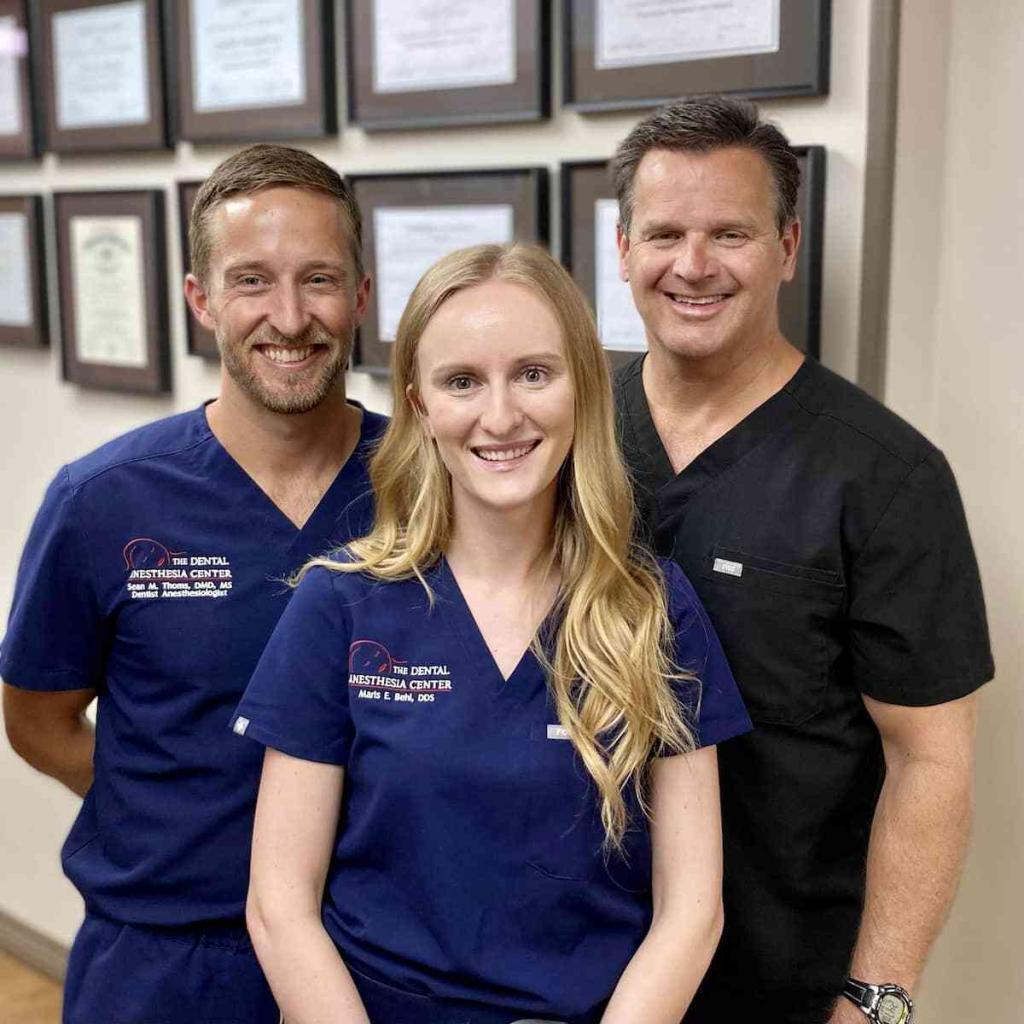At The Dental Anesthesia Center in St. Louis, we specialize in helping patients navigate this decision with expertise. Contact us today.
Dental visits don’t have to be scary. For patients dealing with dental anxiety, sensory sensitivities, or complex medical conditions, modern sedation options have transformed the experience into something peaceful, even relaxing. But with choices like Novocaine, nitrous oxide, oral sedation, IV sedation, and general anesthesia, how do you know which one is right for you or your loved one?

What Is Novocaine?
Novocaine (procaine) is a local anesthetic historically used to numb a specific area during minor dental procedures. While it’s often used as a catch-all term, dentists today more commonly use lidocaine, which is safer and more effective.
Use Case: Best for fillings, minor extractions, or numbing a single area.
- ✅ Minimal downtime
- ✅ You stay awake
- ❌ Doesn’t help with anxiety or fear
So, What If You’re Anxious or Have Special Needs?
If fear, trauma, autism, ADHD, or other cognitive conditions make a dental visit difficult, local anesthesia like Novocaine might not be enough. That’s where sedation dentistry steps in.
Here are the main options beyond Novocaine—and how they compare:
1. Nitrous Oxide (Laughing Gas)
- What it is: A mild sedative inhaled through a mask.
- Great for: Children and adults with mild anxiety.
- Pros:
- Fast-acting and wears off quickly
- You can drive home after
- Cons:
- Not effective for severe phobia
- Might not be suitable for some patients with respiratory issues
2. Oral Sedation
- What it is: Anti-anxiety pills taken before your appointment.
- Great for: Moderate anxiety or longer procedures.
- Pros:
- You stay conscious but feel calm
- Deeper sedation than laughing gas
- Cons:
- You’ll need someone to drive you home
- Harder to adjust dosage mid-procedure
3. IV Sedation
- What it is: A deeper sedation delivered intravenously.
- Great for: Patients with severe anxiety or those undergoing complex work.
- Pros:
- Fast onset and adjustable dosage
- You may not remember the procedure at all
- Cons:
- Requires an experienced sedation dentist
- Not typically available at general dental offices
4. General Anesthesia
- What it is: Full unconsciousness, similar to hospital surgery.
- Great for Patients with special needs, extensive dental needs, or a strong gag reflex.
- Pros:
- Complete comfort and immobility
- Ideal for children or patients with disabilities
- Cons:
- Must be administered by trained professionals in a licensed facility
- Longer recovery time
Comparing All Sedation Options
| Sedation Type | Conscious? | Anxiety Relief | Ideal For | Recovery Time |
|---|---|---|---|---|
| Novocaine (Local) | Yes | ❌ No | Minor procedures | Minutes |
| Nitrous Oxide | Yes | ✅ Mild | Mild anxiety, kids | Minutes |
| Oral Sedation | Yes | ✅ Moderate | Moderate anxiety, adults | Hours |
| IV Sedation | Drowsy | ✅ Strong | Severe anxiety, long procedures | Hours |
| General Anesthesia | No | ✅ Full | Special needs, major work | Severe anxiety, lengthy procedures |
Why Choose The Dental Anesthesia Center?
We’re not just a general dental office—we’re a licensed facility offering all levels of sedation, from nitrous oxide to general anesthesia for special needs and high-anxiety patients.
- 🩺 Board-certified dental anesthesiologists
- 💙 Experience with patients who have autism, dementia, cerebral palsy, and more
- 🏥 In-office operating room setup with hospital-grade monitoring

So, What’s the Best Option?
There’s no one-size-fits-all answer. The best sedation option depends on:
- Your level of anxiety
- Your medical history
- The complexity of the procedure
- Whether you or your loved one has special healthcare needs
Contact The Dental Anesthesia Center Today
Ready to talk? Schedule a free consultation with our sedation specialists and let’s find the most comfortable, safest option for you.

